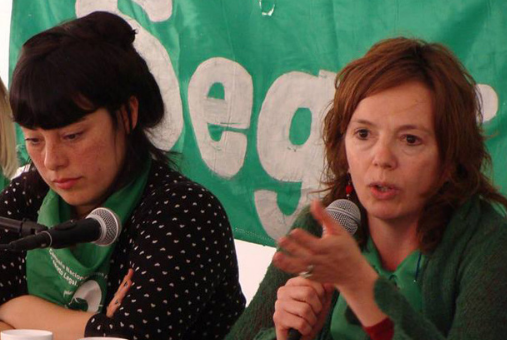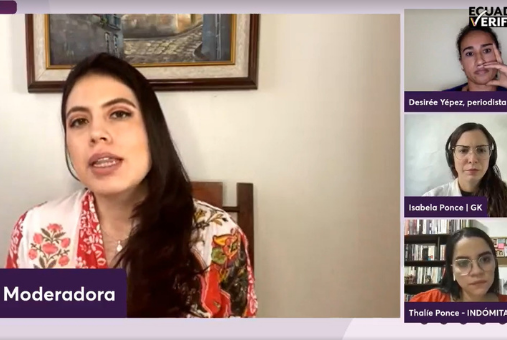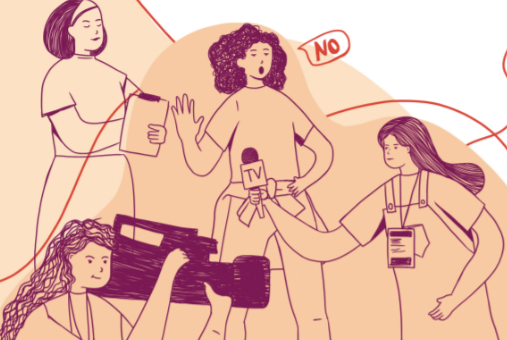
On March 5, the second edition of PodWoman was held, a podcasting event in Spanish dedicated to women. LatAm Journalism Review (LJR) covered the event and spoke with audio and gender experts to analyze the importance of spaces like these.

The recent decriminalization of abortion in Latin America has once again opened the conversation on the importance of appropriate media coverage when dealing with issues of sexual and reproductive rights. We spoke with several feminist journalists from the region to learn about the challenges they faced when covering these issues in their countries.

The pandemic has transformed the routines and professional practices of women journalists in Colombia and Venezuela, imposing more daily working hours and intensifying the use of information and communication technologies, but without a corresponding salary increase, according to research.

Controversy about racism in the pages of the newspaper happened in the midst of initiatives by Folha to increase the ethnic-racial diversity of its team and its content. For Flavia Lima, editor of Diversidade da Folha, criticism of the journal “does not seek to obliterate the debate, but rather qualifies it.”

The inclusion of a gender approach is a challenge within journalism. Journalists face organized campaigns with misleading content, so fact-checking is key to addressing human rights issues from a position of respect, non-revictimization and without falling into sensationalism.

Preparing physically and psychologically for coverage of protests is one of the most important aspects to prevent violence against the press. LatAm Journalism Review spoke with experts about the main recommendations to consider.

Latin America is the region on the planet with the most deaths of communication professionals due to coronavirus, with half of the total cases registered since March 2020, reported the Press Emblem Campaign organization.

In Latin America, the pandemic exacerbated a complex phenomenon that involves many actors and has numerous sources: the excessive promotion and exaggeration –in newspaper articles or announcements by governments and scientific institutes– of the importance or potential value of a clinical trial, treatment, medicine or area of science in particular. This article explains how to avoid falling into these distortions that can lead to the erosion of social trust in science.

As we finish 2021 and enter a new year, the LatAm Journalism Review (LJR) team takes our annual look at the most interesting and important stories we covered this year.

The main finding of the report "Sexual harassment against journalists in Venezuela," from the Network of Venezuelan Women Journalists, is that 45 percent of those surveyed claimed to have suffered sexual harassment, bullying or aggression in the workplace.

A new study in Brazil found that women journalists receive more than twice as many insults on their Twitter profiles as their male counterparts. In the survey, it was found that users who launch attacks against journalists try to delegitimize women’s intellectual capacity to exercise the profession and silence the press, point out professionals' physical features to divert attention from the topics addressed and disseminate false information about them.

The first edition of the Racial Profile of the Brazilian Press shows that Black journalists make up a fifth of the country's newsrooms, despite Black people representing a majority of the population. The unprecedented study also revealed that Black journalists occupy fewer leadership positions and have fewer promotions throughout their career